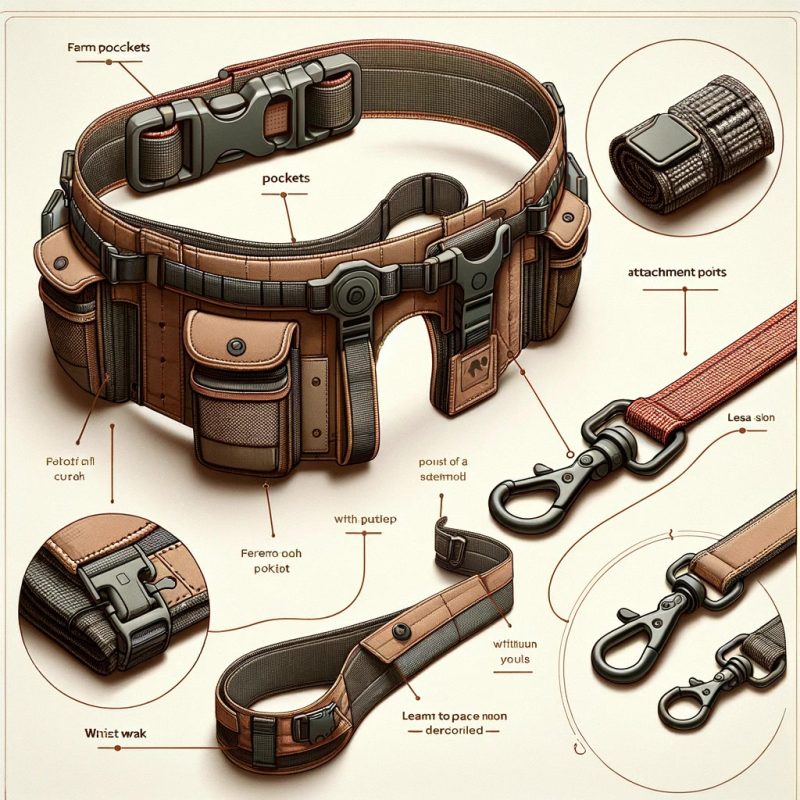Dog leashes are an essential accessory for any dog owner, coming in a myriad of styles and functions.
Among these, the hands-free dog leash stands out for its unique design, offering the freedom to walk your dog without the need to hold onto a leash.
This innovative leash type attaches to a belt or wrist wrap, linking directly to your clothing via a provided ring, ensuring a hands-free experience.
The rising popularity of hands-free dog leashes across online forums sparked my interest, despite my reservations about their impact on control over your pet.
This article dives deep into the world of hands-free leashes, examining their suitability for various dogs and situations.
When Are Hands-Free Leashes a Good Choice?
Best Suited for Exceptionally Trained Dogs

Hands-free leashes demand a dog that exhibits outstanding behavior and obedience.
The lack of a physical grip means your control over the dog is significantly reduced.
This setup works well only if your dog is disciplined enough to walk by your side without pulling or chasing after distractions.
It’s crucial for your dog to respond reliably to voice commands, as any unexpected lunging could result in falls or injury to both the dog and owner.
However, for the well-trained canine companions, a hands-free leash can offer a convenient and enjoyable walking experience, allowing for a closer bond as you walk side by side.
Not Recommended for Large Breeds

Regardless of how well-behaved they are, large breed dogs are not suitable candidates for hands-free leashes.
The inherent looseness and lack of direct control can become a hazard if a large dog gets overly excited, potentially leading to dangerous situations for both the dog and owner.
Pros and Cons of Opting for a Hands-Free Leash

Pros:
- Hands-Free Convenience: The primary advantage is the ability to walk your dog without occupying your hands, making multitasking easier.
- Built-in Storage: Many models come with belts featuring pockets for convenient storage of essentials like waste bags and smartphones.
- Enhanced Multitasking: Allows for a more relaxed walk, enabling you to perform other tasks.
Cons:
- Requires a Highly Trained Dog: Only suitable for dogs that are calm, obedient, and responsive to voice commands.
- Not Suitable for Large Dogs: The risk associated with walking a large dog hands-free makes it a less viable option.
- Constant Vigilance Needed: Owners must remain alert to quickly manage their dogs in case of unexpected behavior.
Making the Right Choice

Hands-free dog leashes can be a beneficial tool for owners of well-behaved, medium to small-sized dogs, offering a unique blend of freedom and functionality.
However, they are not a one-size-fits-all solution and should be chosen with consideration of your dog’s behavior, size, and your ability to maintain control through voice commands.
Remember, the safety and well-being of both you and your dog should always come first.
If you decide to try a hands-free leash, proceed with caution and attentiveness to ensure a pleasant walking experience for both you and your furry friend.







No Comments